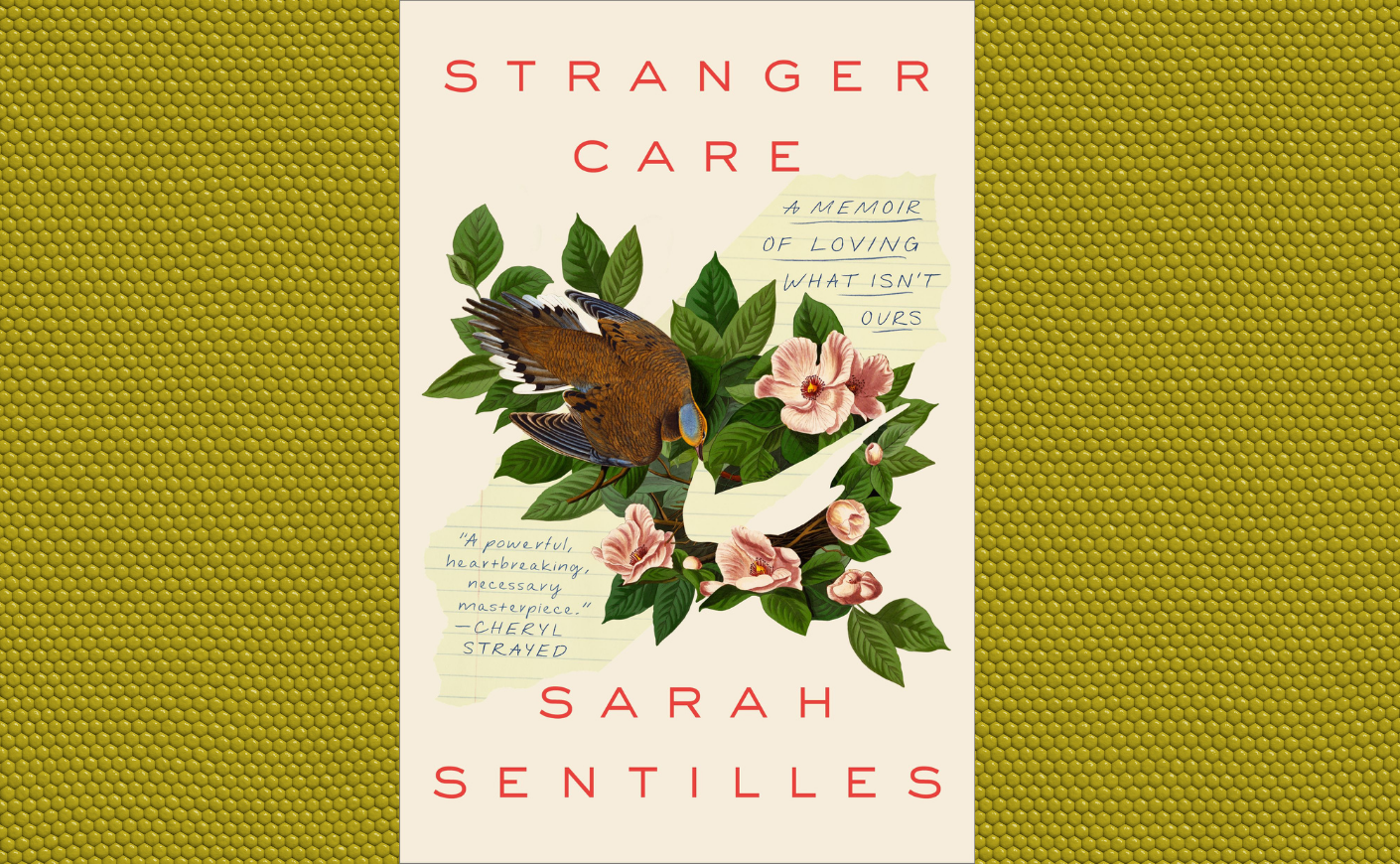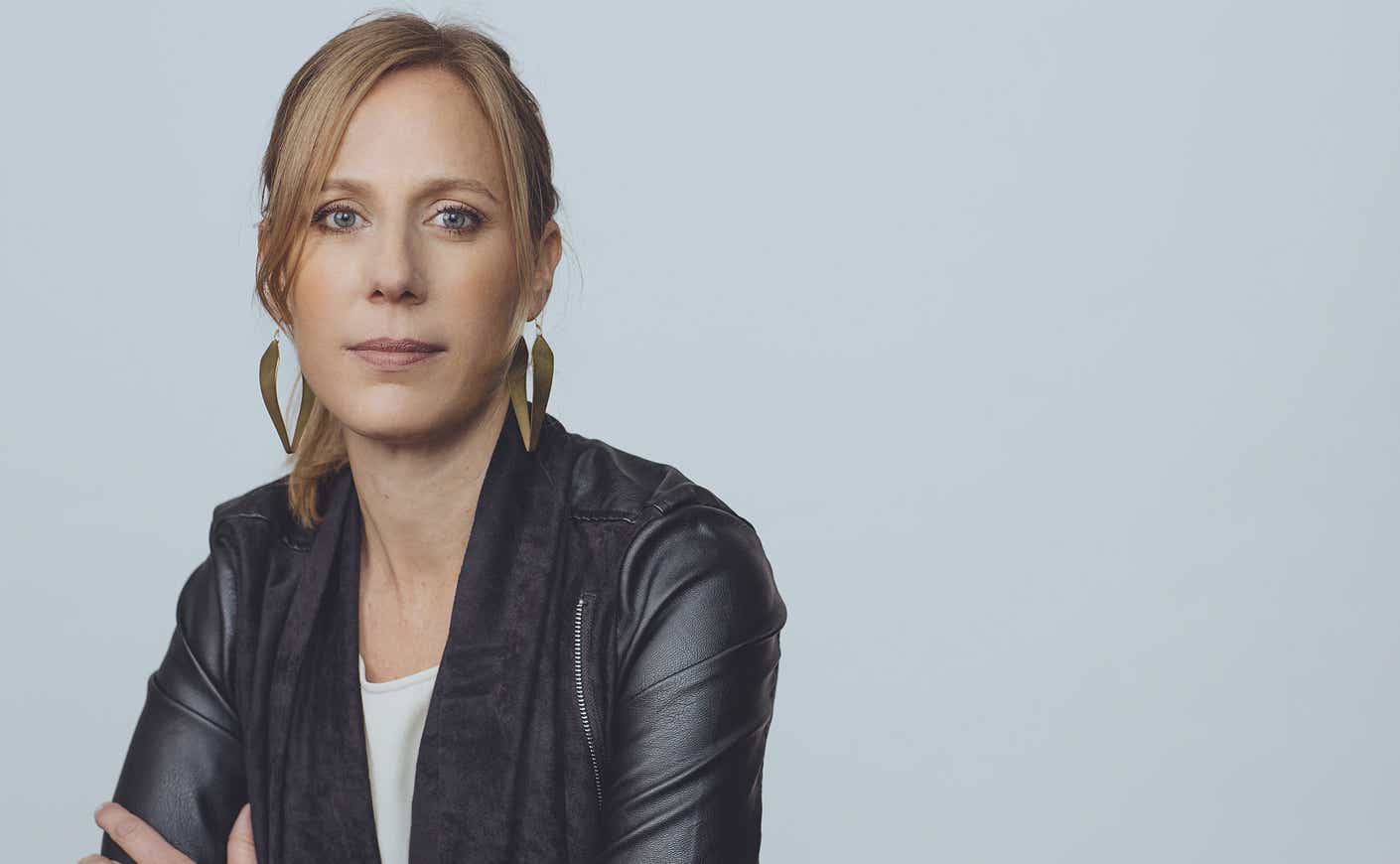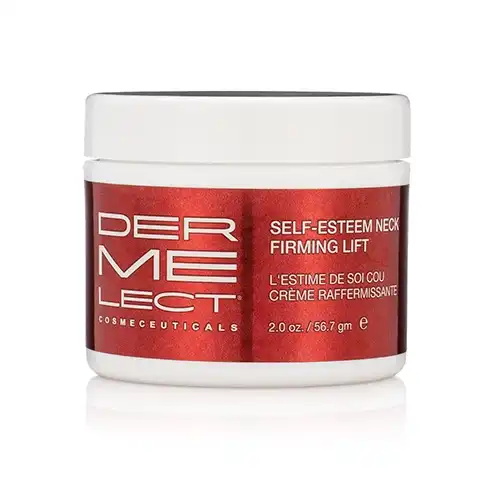Stranger Care author Sarah Sentilles opens up about her experience as a foster parent
Faded pink construction paper letters taped to the Department of Human Services classroom wall spelled “welcome to DHS.” Eric and I sat in the back, near the door, on blue cushioned chairs with wheels. On every long table, a scattered handful of hard candy—peppermints, butterscotch, Tootsie Pops.
The facilitator stood at the front of the room. “Our goal at DHS is to keep biological families together,” she said. “The first plan is always a return-home plan, but in the meantime, kids need a safe place to go.”
A man in an orange sweater at the table next to us crunched one Tootsie Pop after another, scrolling through his phone’s Facebook feed while the facilitator talked.
“Kids in foster care are our most vulnerable citizens,” she said. “And the state doesn’t make a very good parent.” She handed us posters outlining foster children’s rights: access to free soap and shampoo, to clean drinking water, to a working phone.
Eric and I were in that classroom to become licensed as foster parents. We’d decided not to have biological children. We wanted to help care for a child already in the world. We planned to adopt a child through the foster care system.
During a break, I walked out of the classroom and into a larger room with glass-walled offices on one side and a waiting area on the other. Couches, chairs, toys, games, multicolored rugs — a place for parents to visit their children who have been taken away.
“Remember,” the facilitator said when we returned, “forming a healthy attachment to a child is very different from making a claim on that child. Foster families have to parent knowing the child will leave.” She looked around the room. “How many of you are relatives of a child in care?” she asked, and everyone, except Eric and me, raised their hands. Our classmates were there to be certified as foster parents so they could care for nephews, nieces, or grandchildren whose biological parents couldn’t care for them.
“You’re doing a good thing,” she told them.
Most foster parents, like our classmates, are relative care providers, but they take care of less than half of the children in the foster care system. The rest live with people who aren’t blood relatives, the facilitator explained. She gestured to Eric and me. “We call it stranger care,” she said.
I still think about that first training meeting, about that version of myself, with my hope and my fear pointed in the wrong direction, afraid I wouldn’t be able to love someone else’s child, unaware of the joy to come, and the heartbreak, the helplessness. Though we’d been told the goal of the foster care system is reunification — returning the child to their biological family — we still hoped to adopt, and that hope was encouraged with our first placement: an infant, three days old. We were told her mother was a “poor prognosis,” which meant, for certain reasons, she was unlikely to regain custody of her baby.
But we didn’t get to keep her. Her 90-minute weekly visits with her mother became six-hour visits, became overnights, became three-day visits, became forever. Our foster daughter lived with us for ten months — and then she was gone, reunified with her biological mother. For Eric and me, the loss of her was heartbreaking, shattering. But for her mother, it was the outcome she had worked so hard to achieve. She got her daughter back.
In the months after reunification — empty highchair, empty playmat, empty crib — I felt that no one understood my grief about our foster daughter. But then I realized her mother did. She lost her daughter to me, and then I lost my daughter to her. This we had in common — and our love for the same little girl.
“Given what you know now, would you do it again?” people ask. Most expect me to say No. They assume that we won’t foster again because we had such a difficult experience. They think we are, somehow, anti-foster-care. But we aren’t. We are pro-child and pro-family — and we want to advocate for a system that works better for those trapped inside it.
Eric and I are working with an adoption agency now because we want to be a forever home for a child. But we also renew our foster care license every year. We do this because we want to be ready should our former foster daughter need a home again. We also renew our license because we know that, when the time is right, we will be foster parents again. Here are nine reasons why.

Why to Become a Foster Parent
1. Because every child deserves a safe place
We tell ourselves stories about who is our responsibility and who is not, about who deserves protection and who does not. Who do you shelter? Becoming a foster parent will blow open the stories you tell about belonging and widen your circle of care. In some ways, becoming a foster parent is the most straightforward thing in the world: A child needs a safe place, and you can be that safe place.
2. Because we are called to care for strangers
As a foster parent, my job was to take care of a stranger, for however long she needed me. This experience transformed my understanding of family from something you are into something you do. Kinship is a practice — and every major religion teaches this, repeats it, admonishes us to do it. My love for our foster daughter wasn’t biological. It wasn’t a result of having some part of me — my heart, my DNA — out in the world. It was because she had been entrusted to me. My task was to keep her safe and protected, to help her thrive. Here, tend this, I heard the universe say to me about our vulnerable, fragile, beautiful, wiggly, curious girl. And my heart expanded. I believe it can expand for the earth, for a neighbor, for a tree, for a river, for a refugee, too.
3. Because there is tremendous need
Almost half a million children are in foster care in the United States on any given day. More than 37 percent of children in the United States experience a Child Protective Services investigation by the time they are eighteen. That’s more than one in three. You can tell a lot about a country by how it takes care of its children, especially its most vulnerable.
4. Because children in foster care did nothing to deserve their situation
People who learned Eric and I wanted to adopt a child through the foster care system often told us stories of adoptions gone wrong. The child incapable of attachment. Who became a drug addict, a runaway, who drained bank accounts, ruined marriages. “I have a friend who adopted,” these stories began. “It was a nightmare.” How often this happened surprised me. People kept telling us to fear other people’s children. And their stories did make me afraid, convinced me I was the one whose life was at risk. Listening, I’d forget the abandoned, the neglected, the children curled on the floor of an empty-cabinet kitchen or crying in a bathroom stall or shaking in a crib. I’d forget that these children belong to all of us. Most children in the foster care system have done nothing wrong. Their behavior — their trauma, their loss, their struggles, their pain — signal our failures, not theirs.
5. Because the more people who are invested in the foster care system, the better
We need more eyes on the foster care system, more transparency, more people invested in how it works and fails to work. Like every underfunded organization that we ask to clean up after our oppressive systems, the foster care system is broken. Some parts function beautifully; some parts must be dismantled or repaired. The bureaucracy was incredibly challenging for me to navigate, and I am a White overeducated woman with money. What does that system do to poor people? To people who identify as BIPOC? To queer folks? To people struggling with addiction? The more people who witness what happens in this system, the better. Perhaps when it’s not some stranger’s kid trapped inside that system, but yours, we will start fixing it.
6. Because caring about strangers will change you
“If you can’t love your foster children’s biological parents,” one of our social workers said during our training, “then the children will think you can’t love them, either.” My relationship with our foster daughter’s biological mother has been one of the most difficult relationships of my life. It’s also been the most profound. I thought the stranger I was supposed to care for was our foster daughter — but loving her was easy, effortless, immediate. The real stranger was her mother. Everything in our different worlds was designed to keep us apart. We weren’t supposed to like each other, much less love each other. But now we love the same girl. Now we are in this together.
7. Because you will learn about your community
From criminal background checks to questions about your religious beliefs to questions about your sex life, the process of becoming a foster parent is long and complicated and invasive. But it should be. The state is trusting you with a child. Trainings and licensing processes vary from state to state, but you will learn a lot about yourself, your community, our country, and what is needed to make a safer and more just world for the most precarious among us.
8. Because there are many ways to help
There are different ways to be a foster parent. You can choose the situation and timing that works best for you and for your family. Once you are licensed, you can provide a safe place for one night for a child in need. You can agree to be respite care for a foster family who might need a break. You can house a child for the short term. Or become a child’s foster parents for as long as the child needs you. You can agree to welcome one child or a group of siblings or several children from different families. You can be a temporary placement, or you can become a permanent placement for the child in your care if their biological parents’ rights are terminated. You can also adopt a child through the foster care system if their parents’ rights have already been terminated. There are more than 100,000 children waiting for permanent homes right now.
9. Because children in the foster care system belong to us
“I always wanted to be a foster parent,” people say to me, “but I really wanted children of my own.” Before we brought our foster daughter home, I shared their fears about whether I would be able to love a child who wasn’t “mine.” I didn’t need to. My love for her was immediate and fierce. Any child you bring into your life will be yours. At the same time, all children — whether you give birth to them or find them some other way — are not yours. They are strangers, mysterious beings whose becoming we get to witness and support. Our mistaken ideas about what counts as “family” have warped our thinking about who belongs to whom, about which beings we are responsible for, about who deserves our love and attention and resources. The children in the foster care system are already “ours.” The only question is whether we will care for them.
Sarah Sentilles is the author of Stranger Care: A Memoir of Loving What Isn’t Ours. Enter here for a chance to win a copy of her new book.













